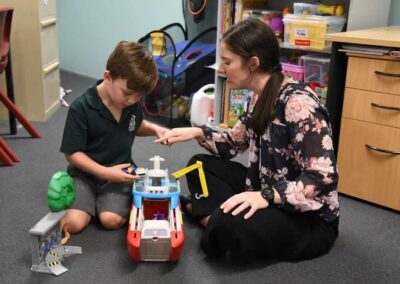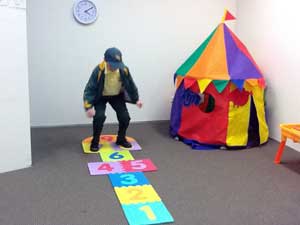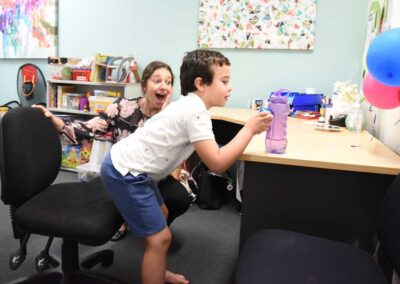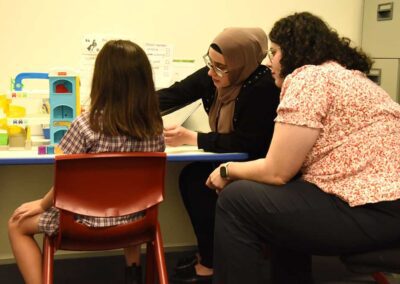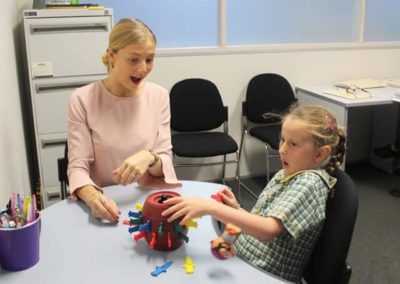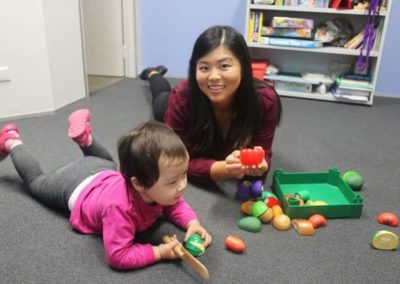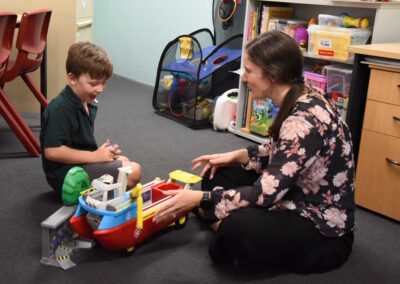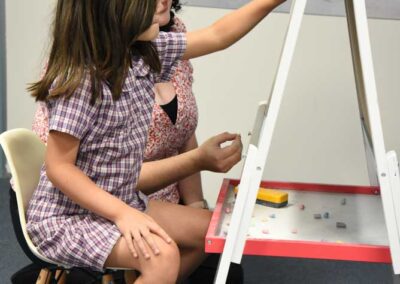Concerned with how well your child uses and/or understands language?
What are the domains of language?
Expressive Language
Expressive language is the ability to use spoken or written words in talking. Expressive language skills are important to help your child communicate their ideas, wants, needs, thoughts and personal experiences with others in grammatical sentences.
How do I know if my child has expressive language difficulties?
- Does your child use short, simple sentences compared to children of a similar age?
- Does your child use simple word choices compared to children of a similar age?
- Does your child use incorrect grammar (e.g., past tense verbs)?
- Does your child have difficulty using pronouns (e.g., he, she, they)?
- Does your child have difficulty telling a story?
- Does your child mix up the word order in sentences?
Receptive Language
Receptive language is the ability to understand spoken or written words. Receptive language skills are important to help your child learn how to follow instructions, identify concepts, understand new information and participate in a range of activities/tasks.
How do I know if my child has receptive language difficulties?
- Does your child have difficulty following multiple step instructions?
- Does your child have difficulty responding to WH questions (e.g., “what did you do at school?”)?
- Is your child able to follow or understand a story?
- Does your child understand the meaning of words?
- Does your child understand what is said to them or do they tend to ‘tune out’ when someone is talking?

What is Developmental Language Disorder?
Development Language Disorder (DLD), previously known as Specific Language Impairment (SLI) is a neurodevelopmental condition affecting approximately 7% of the population. The cause of DLD is generally unknown. DLD that causes difficulties with understanding and/or talking. DLD may impact behaviour, attention, academic progression, and peer relationships.
Speech pathologists are trained to use evidence-based assessment and intervention to improve your child’s understanding and use of language.

